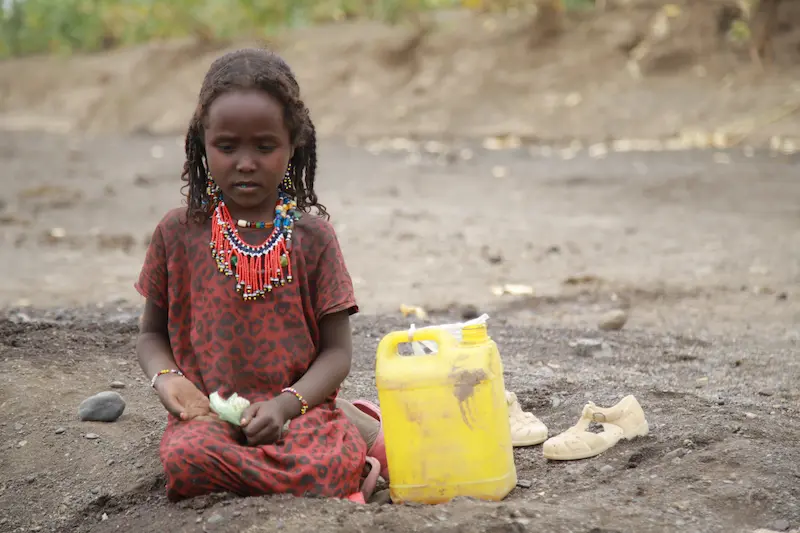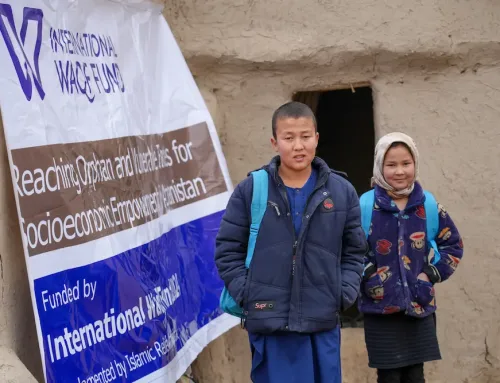Table of Contents
The Difference Between Waqf and Charity
When many people ask about the difference between waqf and charity, the goal often goes beyond theoretical understanding.
They are seeking the option that delivers the most benefit to society and the most sustainable long-term impact.
While both are acts of benevolence and righteousness, their structural and long-term differences make this question central for anyone aiming to leave a deep and lasting humanitarian legacy.
Functional Definition: Waqf and Charity
Charity refers to giving money, food, or services directly to those in need. It is one of the simplest and most immediate forms of giving, highly praised in Islamic teachings.
Allah says: “Those who spend their wealth in the day and night, secretly and openly, will have their reward with their Lord.”
Waqf, on the other hand, is the dedication of an asset whose revenue is used for ongoing charitable purposes, such as building a school, supporting orphans, or funding long-term healthcare—this is known as “sadaqah jariyah” or continuous charity.
The essential difference is that charity has an instant effect but ends when the money runs out, while waqf establishes a sustainable source of benefit that continues to grow and impact lives over time.

Impact Over Time: Waqf Endures, Charity Ends
One of the greatest advantages of waqf is that it creates a stable and permanent source of funding that can be relied upon to support critical development projects.
For instance, dedicating a property or a portion of a monthly income as waqf for kidney failure patients ensures ongoing funding for treatment, whereas seasonal charity might only cover one-time medical expenses.
Thus, waqf is the ideal choice for charitable organizations seeking steady and reliable income to maintain uninterrupted services.
Empowerment: Waqf Builds Independence, Charity Alleviates Need
Waqf allows charitable institutions to engage in long-term planning and implement developmental programs, such as scholarships or micro-finance projects for widows and orphans.
Charity provides immediate relief but often fails to generate transformational change in beneficiaries’ lives.
Waqf addresses the root causes of hardship, while charity often treats its symptoms.
This is why most modern development strategies recommend integrating waqf into charitable plans to ensure long-term empowerment rather than short-term relief.

Reward and Spiritual Merit: Waqf Is a Lifelong Investment, Even After Death
Waqf does not stop at the boundaries of this life—it becomes one of the few deeds that continue to benefit a person after death.
The Prophet Muhammad ﷺ said: “When a person dies, all their deeds come to an end except three: a continuous charity (sadaqah jariyah), beneficial knowledge, or a righteous child who prays for them.”
Waqf is considered an investment in one’s eternal record of good deeds, providing ongoing reward as long as the original asset remains and its benefit endures.
Charity, though immensely valuable, has a limited lifespan unless it is given in a continuous form.

Impact on Beneficiaries: Waqf Creates Solutions, Charity Provides Relief
In major humanitarian crises, such as natural disasters or displacement, charity is vital to saving lives.
However, when it comes to building futures for orphans, empowering women, or supporting education, waqf is the more effective tool.
For example, an educational waqf that funds annual university scholarships for dozens of students will have a greater long-term impact than a one-time tuition payment for a single student.
Waqf functions as a permanent platform for change, while charity often fills a temporary gap.

Strategic Balance: Why Do We Need Both?
Waqf does not replace charity, and charity does not eliminate the need for waqf.
Healthy communities need both: quick responses (charity) and long-term stability (waqf). Combining both is the most effective strategy—charity saves lives in emergencies, while waqf sustains the long-term care and growth of the most vulnerable.
Which Form of Giving Will Keep Your Name Alive?
In the end, all forms of giving are commendable. But if you’re looking for a way to change lives and sustain good deeds after you’re gone, waqf is the path.
You don’t need to be wealthy—you only need to believe that real goodness is not measured by how much you gave, but by how long your gift continues to help others.
Establishing even a small waqf in your name or in honor of your parents could be the greatest gift you ever offer your community, your Hereafter, and your legacy.
How to Start Your Own Waqf?
Through the website of the International Waqf Fund, you can donate the value of a waqf share. The fund then invests the amount and uses its annual returns to finance the emergency relief fund.
Each year, your donation grows and saves more lives in different communities—and that is the ultimate goal





